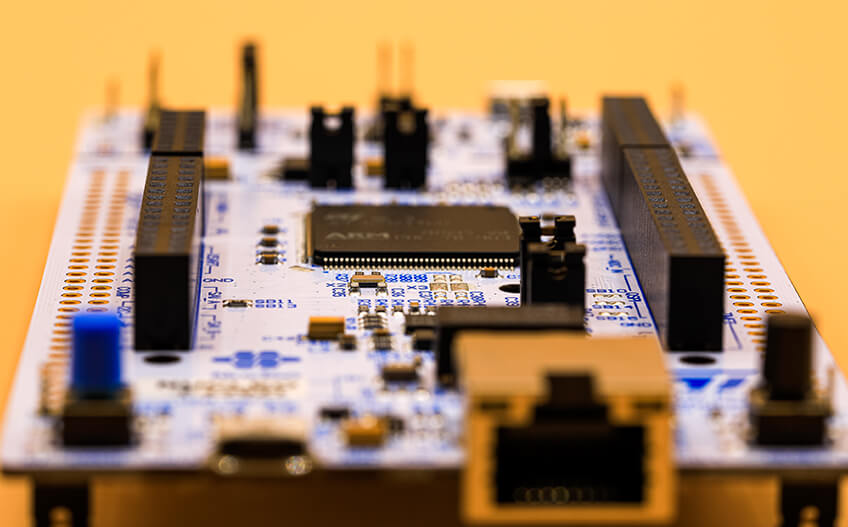Quantum-safe encryption methods on embedded systems are possible!

In automotive and other industries, embedded systems are used to perform numerous functions and tasks. Post-quantum cryptography requires very long keys whose storage requirements are far beyond the limits of conventional systems in this context.
MTG has developed a technique for using post-quantum methods with large keys on embedded systems.
The specific question here is how the memory requirements for the Classic McEliece public key can be reduced. The PQC algorithm Classic McEliece is often not even considered for embedded devices, because with 255KB to over 1MB the sizes of public keys are usually much too large for the available memory. A possible solution is that such keys are generated externally and written to the flash memory of the device, but this only makes sense for limited application purposes. The space problem is solved by compact storage of the key pair. This is achieved by not explicitly storing the public key, but by adding a much smaller matrix to the private key. With this method, the public key can be generated piecewise "on-the-fly" without having to store it completely in memory.
To demonstrate the practical relevance, a Proof-of-Concept TLS implementation was implemented. It could be demonstrated that it is possible to run a Classic McEliece based Ephemeral Key Exchange for the mceliece348864 parameter set on an ARM Cortex-M4 board with 256 KB RAM. Although the public Classic McEliece key was already 255 KB in size, there was still enough memory left for the TLS stack, the TCP/IP stack and for the verification of SPHINCS+ signatures in the TLS handshake.
The code has been published by MTG on Github and is open source.
Downloads & Links
Githib: Code base for Classic McEliece Implementation with Low Memory Footprint
Video Presentation of a Classic McEliece Implementation with Low Memory Footprint
Classic McEliece Implementation with Low Memory Footprint - A Scientific Paper
Classic McEliece encryption applicable for embedded devices!


